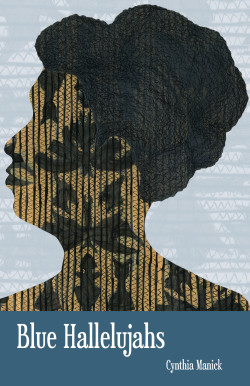 You might not want to read Karina Bush’s Maiden unless you like lewd literature. She presents poetry in a frank way. This moves away from the subtleness that some have come to expect and appreciate in the art of poetry. This is not a case for the censoring of Karina’s work or works like hers. In some ways, her writing reminds us that the world is not monolithic when it comes to the subject of sex.
You might not want to read Karina Bush’s Maiden unless you like lewd literature. She presents poetry in a frank way. This moves away from the subtleness that some have come to expect and appreciate in the art of poetry. This is not a case for the censoring of Karina’s work or works like hers. In some ways, her writing reminds us that the world is not monolithic when it comes to the subject of sex.
Author:
A review of Gnarled Bones by Tam May
 On reading these stories, one is reminded of the paintings of Marc Chagall: a hermetic world of imagery, difficult to interpret, informed by rich folk traditions and personal experience. In Gnarled Bones, women are the principal (but by no means sole) targets of the past’s slings and arrows. In this regard, the opening story, ‘Mother of Mischief’, is the most interesting in the collection, casting retrospective light on its own ambiguous title and showing us how we can, after all, be the authors of our own entrapment.
On reading these stories, one is reminded of the paintings of Marc Chagall: a hermetic world of imagery, difficult to interpret, informed by rich folk traditions and personal experience. In Gnarled Bones, women are the principal (but by no means sole) targets of the past’s slings and arrows. In this regard, the opening story, ‘Mother of Mischief’, is the most interesting in the collection, casting retrospective light on its own ambiguous title and showing us how we can, after all, be the authors of our own entrapment.
Dr Joanna McMillan talks about Get Lean, Stay Lean
Nutritionist Dr Joanna McMillan talks about her new book Get Lean, Stay Lean, including how the book came together, why people are still struggling with nutritional and weightloss, outlines the Dr Joanna plate, her six steps to success and which one is…
A review of Get Lean, Stay Lean by Dr Joanna McMillan
 The advice provided by Dr Joanna McMillan in Get Lean, Stay Lean is neither faddish nor confusing. It’s commonsense and you probably already know it. Eat more vegetables. Exercise. Keep stress to a minimum. That’s the crux of it (and probably the crux of most reputable books on health and nutrition), but McMillan has presented this information that everybody knows and few people do in a way that makes it very easy to incorporate into day-to-day living. Despite the title, Get Lean, Stay Lean really isn’t about weight loss. It’s about developing healthy, sustainable habits.
The advice provided by Dr Joanna McMillan in Get Lean, Stay Lean is neither faddish nor confusing. It’s commonsense and you probably already know it. Eat more vegetables. Exercise. Keep stress to a minimum. That’s the crux of it (and probably the crux of most reputable books on health and nutrition), but McMillan has presented this information that everybody knows and few people do in a way that makes it very easy to incorporate into day-to-day living. Despite the title, Get Lean, Stay Lean really isn’t about weight loss. It’s about developing healthy, sustainable habits.
A review of The Adventures of Jazzie G: Search for the Missing Peace by Gayle Johnston
 Traveling on a CyberCoaster, meeting a blue-eyed pirate, dodging danger more than once, The Adventures of Jazzie G is a well written, fast paced book complete with snappy dialogue, and stimulating settings sure to please the target audience of Middle Grades – Young Adult readers who enjoy a bit of fantasy, excitement and situations featuring kids their own ages. Readers meet so many interesting characters bringing perspective of other cultures in a non-preachy manner leading to beginning understanding of optimism, comradery and how peace and acceptance comes about on individual basis.
Traveling on a CyberCoaster, meeting a blue-eyed pirate, dodging danger more than once, The Adventures of Jazzie G is a well written, fast paced book complete with snappy dialogue, and stimulating settings sure to please the target audience of Middle Grades – Young Adult readers who enjoy a bit of fantasy, excitement and situations featuring kids their own ages. Readers meet so many interesting characters bringing perspective of other cultures in a non-preachy manner leading to beginning understanding of optimism, comradery and how peace and acceptance comes about on individual basis.
A review of Safe at Home by C Dennis Moore
 Safe At Home, hooks the reader into the action from the opening lines and carries the reader along on an progressively risky ride right to the last paragraph. Spine tingling action, convincing dialog, agreeably mystifying anxiety all flourish in this chronicle shaped with clever skillfulness.
Safe At Home, hooks the reader into the action from the opening lines and carries the reader along on an progressively risky ride right to the last paragraph. Spine tingling action, convincing dialog, agreeably mystifying anxiety all flourish in this chronicle shaped with clever skillfulness.
An Interview with Mark Lefko
 The author of Global Sustainability – 21 Leading CEOs Show How to Do Well By Doing Good? talks about the concept of global sustainability and what it means, why it’s important that businesses incorporate global sustainability practices, how and why he chose his interviewees, why the process has been so slow, some examples and mistakes, what led to his own passion for sustainability, the inspiration for his book, and lots more.
The author of Global Sustainability – 21 Leading CEOs Show How to Do Well By Doing Good? talks about the concept of global sustainability and what it means, why it’s important that businesses incorporate global sustainability practices, how and why he chose his interviewees, why the process has been so slow, some examples and mistakes, what led to his own passion for sustainability, the inspiration for his book, and lots more.
A review of Release the Bats: Writing Your Way Out of It by DBC Pierre
 DBC Pierre’s writing book is like his fiction – a bit bizarre, purplish, chaotic, and often brilliant. Release the Bats is inspirational, making it clear that anyone can be a writer regardless of circumstance, and that literature is all about the interplay of worlds (internal/external; the gap between chaos and the ideal). The book provides a welter of ideas and tools and does so in a surprisingly coherent manner. It’s surprising because the book has a tendency to ramble, philosophise in extended and often convoluted metaphors, explode into digression, and slide into memoir, with Pierre using his own experiences as an example of how and in what ways his tools work.
DBC Pierre’s writing book is like his fiction – a bit bizarre, purplish, chaotic, and often brilliant. Release the Bats is inspirational, making it clear that anyone can be a writer regardless of circumstance, and that literature is all about the interplay of worlds (internal/external; the gap between chaos and the ideal). The book provides a welter of ideas and tools and does so in a surprisingly coherent manner. It’s surprising because the book has a tendency to ramble, philosophise in extended and often convoluted metaphors, explode into digression, and slide into memoir, with Pierre using his own experiences as an example of how and in what ways his tools work.
 We have a copy of Global Sustainability: 21 Leading CEOs Show How to Do Well by Doing Good by Mark Lefko to giveaway. To win, just sign up for our Free Newsletter on the right hand side of the site.
We have a copy of Global Sustainability: 21 Leading CEOs Show How to Do Well by Doing Good by Mark Lefko to giveaway. To win, just sign up for our Free Newsletter on the right hand side of the site.
The winner will be drawn by the 1st of February from subscribers who enter via the newsletter. Good luck!
A review of Blue Hallelujahs by Cynthia Manick
 Cynthia Manick’s Blue Hallelujahs is an impressive debut poetry collection. Manick’s talent shines here. Her poetry is like a good meal, worth savoring. She describes small things in big ways. This approach draws the reader into the landscape of her poetry. In The Shop Washington Built, laughter is described as “the size of two small ships” (8) and strength is the ability “to hold lightening inside/grow daughters among/shifting currents” (Things I Carry Into The World, 16).
Cynthia Manick’s Blue Hallelujahs is an impressive debut poetry collection. Manick’s talent shines here. Her poetry is like a good meal, worth savoring. She describes small things in big ways. This approach draws the reader into the landscape of her poetry. In The Shop Washington Built, laughter is described as “the size of two small ships” (8) and strength is the ability “to hold lightening inside/grow daughters among/shifting currents” (Things I Carry Into The World, 16).